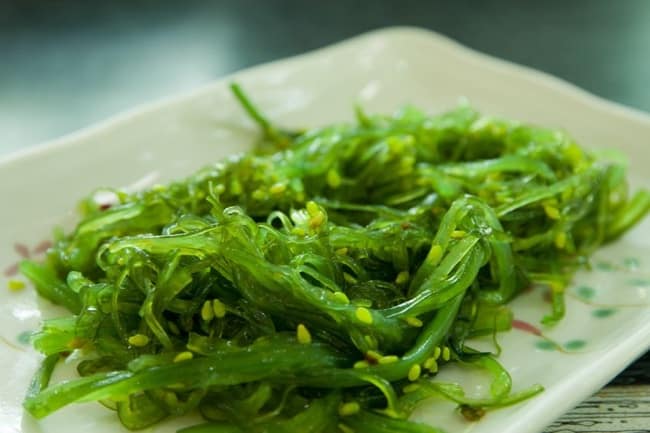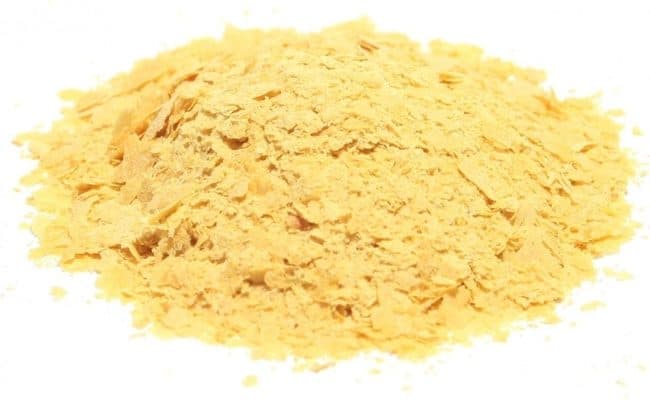
Seaweed intake has been considered normal part of diet for many Asian cultures, but Western societies are just starting to catch on to eating seaweed. Seaweed has many similar nutritional benefits as other leafy green vegetables; they are very low in calories, high in fiber, high in antioxidants, high in vitamins and minerals.
One of the main differences between leafy greens and seaweed is how they’re grown. Since seaweed is grown in salt water, the nutrients it absorbs from its surroundings will be different than leafy greens grown in soil.
Seaweed is more widely available dried compared to fresh in Western societies. Therefore, when comparing seaweed nutrition for gram weight, the serving size is usually pretty light.
Eating very large doses of seaweed is generally not recommended, as it is a rich source of minerals that could be dangerous when eaten in large quantities. As with any food, seaweed is best to eat it in moderation as part of a healthy diet.
Consuming seaweed in supplemental form should be used with caution. With the increase of pollution and toxic waste build up in the oceans, these harmful substances can be transferred to seaweed.
Supplements are not regulated by the FDA, so consult your healthcare team before taking any supplements.
Antioxidant protection
Plants are full of beneficial antioxidants that can help protect cells from damage. Eating foods high in antioxidants may help lower risk for chronic diseases like cardiovascular disease, certain types of cancer and may even help lower risk for dementia.
Eating a variety of plant foods is recommended because each provides unique benefits. Adding seaweed to your diet can help give you a diverse source of antioxidants.
According to the European Food Information Council (1), compounds in seaweed called fucoidans have been shown to fight cancer cells. Compounds in seaweed can also be considered anti-inflammatory.
Inflammation is associated with many chronic diseases, so getting anti-inflammatory foods in the diet may help lower inflammation markers in the body.
Many studies with seaweed have been done with cells or animals. These studies suggest seaweed is a rich source of anti-inflammatory, antioxidant and even anti-carcinogenic properties. However, more studies are needed with humans.
Blood sugar, cholesterol levels and gut health
Seaweed is a source of fiber called soluble fiber. Soluble fiber means this type of fiber dissolves in water to form a gel like substance. Soluble fiber (2) can help lower blood cholesterol levels and help keep stabilize blood sugar levels.
Eating foods high in fiber can also provide a sense of fullness or satiety. Therefore, seaweed may also help postprandial satiety.
Soluble fiber from seaweed is also considered a prebiotic. Getting sources of prebiotics in the diet can help promote beneficial bacteria, probiotics, in the digestive tract. Research continues to unfold the benefits of having this beneficial bacteria in the gut. Eating prebiotic foods is one way to help encourage probiotics in the digestive tract.
Adding seaweed to your diet could help promote gut health and healthy blood levels of cholesterol and blood sugar levels.
In fact, a 2012 review article (3) suggests because of seaweed’s impact on blood sugar and cholesterol levels, it could be considered in the future with more research an anti-obesity food.
Source of amino acids, vitamins and minerals
Seaweed is a source of many minerals like calcium, iron, magnesium and potassium that most Americans have a hard time reaching the daily recommended intake.
On the other hand, since an average serving of dried seaweed is usually small, like around 10 grams, the amount of minerals one can get from seaweed is probably not that much.
However, eating more than 10 grams of seaweed could help bump up the amount of minerals you get.
Seaweed can be high in iodine which is fine as long as seaweed isn’t eaten in excess. The tolerable upper limit for daily iodine is 1,100 mcg.
Getting too much iodine can mimic symptoms of iodine deficiency: goiter, elevated TSH levels and hypothyroidism (4).
Eating seaweed in moderate doses shouldn’t be any cause for concern, but if you have a history of thyroid issues or taking other medication speak with your healthcare team.
Seaweed is also a source of vitamin B12. Most food sources of vitamin B12 are from animals, so seaweed is a vegan friendly choice for vitamin B12.
Seaweed is naturally lower in fat, and some varieties are rich in protein. According to the European Food Information Council, some seaweed varieties contain a similar amino acid profile to eggs.
Potential concerns with seaweed
Seaweed is considered a safe, nutritious food that has many health benefits. However, depending on the type of seaweed and where it comes from, there may be a concern about heavy metals in seaweed. Brown seaweed has been shown to be high in arsenic.
Supplemental seaweed could also be a potential source for other heavy metals or toxic waste residue from pollutants in the ocean. Therefore, caution should be used for choosing reputable seaweed products.
Is seaweed a super food?
There is no standard definition of what a super food is, but most people consider superfoods to be very nutritionally dense.
Seaweed is a source of many nutrients, especially minerals that most Americans fall short on.
However, a usual serving of dried seaweed is relatively small. Therefore, eating 10 grams of seaweed is not significantly going to increase your mineral intake.
Eating more than 10 grams could help boost intake of nutrients.
Seaweed has been shown to be a source of antioxidants that could have anti-carcinogenic properties and help lower inflammation.
Plus, it is a source of soluble fiber which can help balance blood sugar levels and lower blood cholesterol levels.
Taking together the mineral content, antioxidants and fiber source, you could consider seaweed a super food. However, there are potential risks for eating very high amounts of seaweed.
Getting high intakes of iodine could be harmful, and some seaweed, especially supplements, could be a source of heavy metals or other toxins from pollutants.
As with anything, eat seaweed in moderation. There is no one super food that covers all nutritional needs, but eating a variety of nutrient dense foods is recommended.










